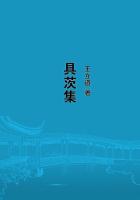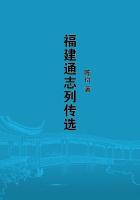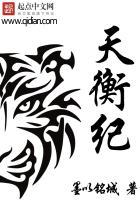At Paris, in the roastmeat cookery of the Petit Chastelet, before the cookshop of one of the roastmeat sellers of that lane, a certain hungry porter was eating his bread, after he had by parcels kept it a while above the reek and steam of a fat goose on the spit, turning at a great fire, and found it, so besmoked with the vapour, to be savoury; which the cook observing, took no notice, till after having ravined his penny loaf, whereof no morsel had been unsmokified, he was about decamping and going away. But, by your leave, as the fellow thought to have departed thence shot-free, the master-cook laid hold upon him by the gorget, and demanded payment for the smoke of his roast meat. The porter answered, that he had sustained no loss at all; that by what he had done there was no diminution made of the flesh; that he had taken nothing of his, and that therefore he was not indebted to him in anything. As for the smoke in question, that, although he had not been there, it would howsoever have been evaporated;besides, that before that time it had never been seen nor heard that roastmeat smoke was sold upon the streets of Paris. The cook hereto replied, that he was not obliged nor any way bound to feed and nourish for nought a porter whom he had never seen before with the smoke of his roast meat, and thereupon swore that if he would not forthwith content and satisfy him with present payment for the repast which he had thereby got, that he would take his crooked staves from off his back; which, instead of having loads thereafter laid upon them, should serve for fuel to his kitchen fires. Whilst he was going about so to do, and to have pulled them to him by one of the bottom rungs which he had caught in his hand, the sturdy porter got out of his grip, drew forth the knotty cudgel, and stood to his own defence. The altercation waxed hot in words, which moved the gaping hoidens of the sottish Parisians to run from all parts thereabouts, to see what the issue would be of that babbling strife and contention. In the interim of this dispute, to very good purpose Seyny John, the fool and citizen of Paris, happened to be there, whom the cook perceiving, said to the porter, Wilt thou refer and submit unto the noble Seyny John the decision of the difference and controversy which is betwixt us? Yes, by the blood of a goose, answered the porter, I am content. Seyny John the fool, finding that the cook and porter had compromised the determination of their variance and debate to the discretion of his award and arbitrament, after that the reasons on either side whereupon was grounded the mutual fierceness of their brawling jar had been to the full displayed and laid open before him, commanded the porter to draw out of the fob of his belt a piece or money, if he had it. Whereupon the porter immediately without delay, in reverence to the authority of such a judicious umpire, put the tenth part of a silver Philip into his hand. This little Philip Seyny John took; then set it on his left shoulder, to try by feeling if it was of a sufficient weight. After that, laying it on the palm of his hand, he made it ring and tingle, to understand by the ear if it was of a good alloy in the metal whereof it was composed. Thereafter he put it to the ball or apple of his left eye, to explore by the sight if it was well stamped and marked; all which being done, in a profound silence of the whole doltish people who were there spectators of this pageantry, to the great hope of the cook's and despair of the porter's prevalency in the suit that was in agitation, he finally caused the porter to make it sound several times upon the stall of the cook's shop. Then with a presidential majesty holding his bauble sceptre-like in his hand, muffling his head with a hood of marten skins, each side whereof had the resemblance of an ape's face sprucified up with ears of pasted paper, and having about his neck a bucked ruff, raised, furrowed, and ridged with pointing sticks of the shape and fashion of small organ pipes, he first with all the force of his lungs coughed two or three times, and then with an audible voice pronounced this following sentence:
The court declareth that the porter who ate his bread at the smoke of the roast, hath civilly paid the cook with the sound of his money. And the said court ordaineth that everyone return to his own home, and attend his proper business, without cost and charges, and for a cause. This verdict, award, and arbitrament of the Parisian fool did appear so equitable, yea, so admirable to the aforesaid doctors, that they very much doubted if the matter had been brought before the sessions for justice of the said place, or that the judges of the Rota at Rome had been umpires therein, or yet that the Areopagites themselves had been the deciders thereof, if by any one part, or all of them together, it had been so judicially sententiated and awarded. Therefore advise, if you will be counselled by a fool.















